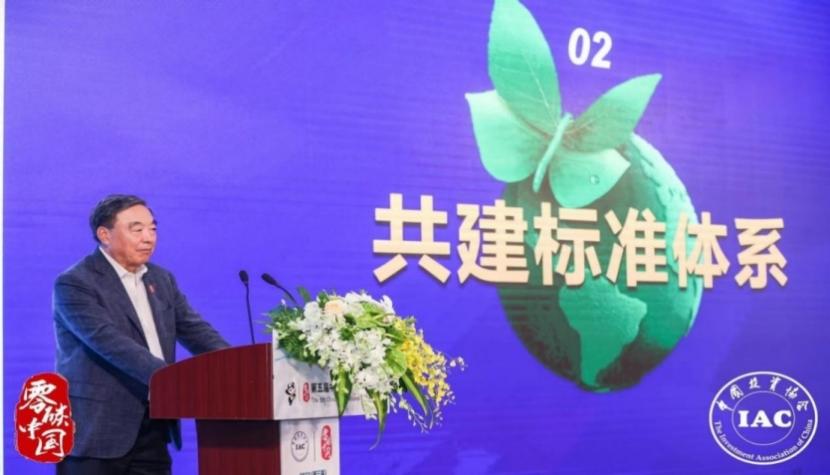On 8 November, the 2022 International Carbon Neutral and Green Investment Conference and Zero Carbon China City Summit was successfully held in Shanghai, under the guidance of the Department of Climate Change of the Ministry of Ecology and Environment and the Department of New Energy under the National Energy Administration, organized by the Investment Association of China (IAC), co-organized by the Rocky Mountain Institute, and hosted by the EIPC under the IAC and the Zero Carbon Research Center.
The conference released six Zero Carbon China evaluation standards, namely the Zero Carbon China Evaluation Standards and General Guidelines, Zero Carbon Park Evaluation Standards and Guidelines, Zero Carbon Factory Evaluation Standards and Guidelines, Zero Carbon Village Evaluation Standards and Guidelines, Zero Carbon Data Center Evaluation Standards and Guidelines and Energy Enterprise ESG Evaluation Standards and Guidelines. Among them, CNTY participated in the compilation of the Zero Carbon China Evaluation Standards and General Guidelines, Zero Carbon Factory Evaluation Standards and Guidelines and Energy Enterprise ESG Evaluation Standards and Guidelines.
The Zero Carbon China Evaluation Standards and General Guidelines aims to promote low-carbon, zero-carbon and carbon-negative technological progress and transformation, enhancing the competitiveness of all participating entities, and driving the transformation of the whole economy and society to a model of high energy efficiency, low energy consumption and zero emissions.
The Zero Carbon Factory Evaluation Standards and Guidelines sets up an all-round zero-carbon factory evaluation system by putting forward the requirements for factory carbon management and carbon emission performance evaluation.
The Energy Enterprise ESG Evaluation Standards and Guidelines is the first ESG evaluation group standard for energy enterprises in China. It evaluates the ESG performance of energy enterprises in a comprehensive, objective and quantifiable manner, which strongly promotes the transformation and upgrading of China's energy industry, and provides an effective management tool to enhance the international competitiveness of the industry.
The standard system released can be used to guide the creation and benchmarking of zero-carbon projects and the evaluation of zero-carbon projects by third-party agencies. It is of great significance for systematically promoting the development of zero-carbon projects and achieving the goal of zero carbon emissions. CNTY will continue to promote zero-carbon, recycling and sustainable development to aid the Zero Carbon China initiative.

At the conference



